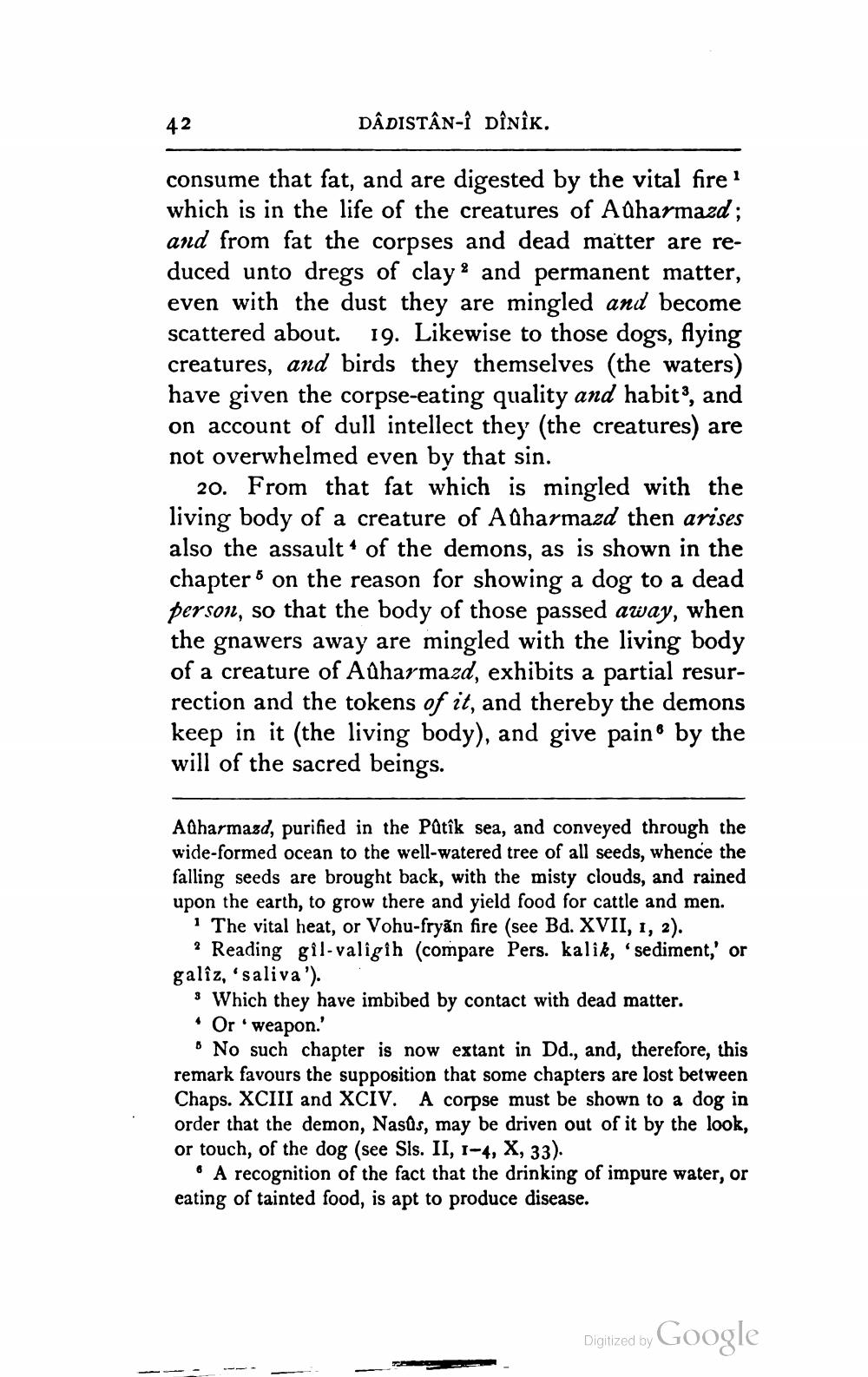________________
42
DÂDISTÂN-I DÎNÎK.
2
consume that fat, and are digested by the vital fire1 which is in the life of the creatures of Aûharmazd; and from fat the corpses and dead matter are reduced unto dregs of clay and permanent matter, even with the dust they are mingled and become scattered about. 19. Likewise to those dogs, flying creatures, and birds they themselves (the waters) have given the corpse-eating quality and habit3, and on account of dull intellect they (the creatures) are not overwhelmed even by that sin.
5
20. From that fat which is mingled with the living body of a creature of Aûharmazd then arises also the assault of the demons, as is shown in the chapter on the reason for showing a dog to a dead person, so that the body of those passed away, when the gnawers away are mingled with the living body of a creature of Aûharmazd, exhibits a partial resurrection and the tokens of it, and thereby the demons keep in it (the living body), and give pain by the will of the sacred beings.
Aûharmazd, purified in the Pûtîk sea, and conveyed through the wide-formed ocean to the well-watered tree of all seeds, whence the falling seeds are brought back, with the misty clouds, and rained upon the earth, to grow there and yield food for cattle and men. 1 The vital heat, or Vohu-fryan fire (see Bd. XVII, 1, 2).
2 Reading gil-valîgîh (compare Pers. kalik, 'sediment,' or galîz, 'saliva').
"Which they have imbibed by contact with dead matter. • Or 'weapon.'
No such chapter is now extant in Dd., and, therefore, this remark favours the supposition that some chapters are lost between Chaps. XCIII and XCIV. A corpse must be shown to a dog in order that the demon, Nasûs, may be driven out of it by the look, or touch, of the dog (see Sls. II, 1-4, X, 33).
• A recognition of the fact that the drinking of impure water, or eating of tainted food, is apt to produce disease.
Digitized by
Google




